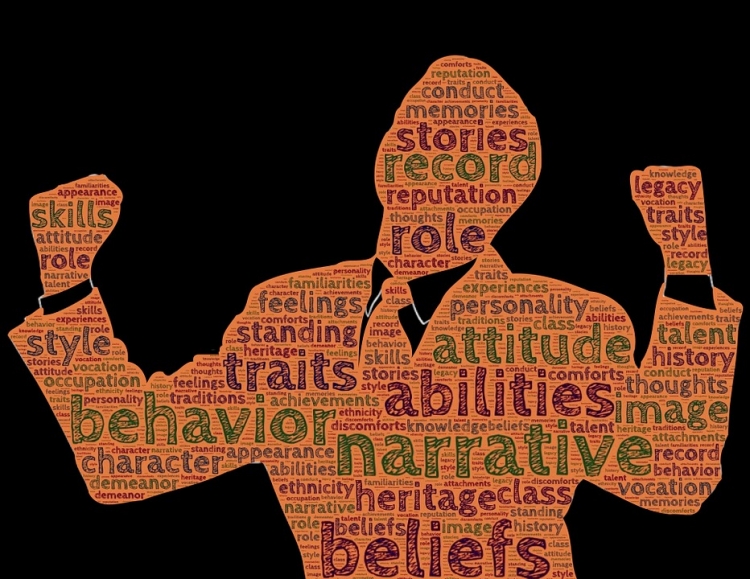Multilinguals: How Speaking Multiple Languages Affects identity

“Wait, you’re not American? Where are you from? How do you speak English so well?”
These questions are all-too-familiar to multilinguals like me. Despite our repetitive and monotonous replies, the truth is that we multilinguals dwell on these questions ourselves. Being able to speak multiple languages fluently – no matter how many benefits it brings – adds to our daily complexities and struggles.
As a French twenty-something woman who speaks English fluently, I am often confronted with "multilingual" issues. My parents are both French. The only connection I have to the English language is through studies at English-speaking schools abroad. Yet despite learning English in my adolescence, I have what others describe as an almost perfect American accent. The year I spent in New York City made me one of “them”. I was still fully French, but the fact that I was able to express myself in an American way made people forget that I was a foreigner. Every time someone asked where I was from, as strangers often do, I would have to spend a good ten minutes explaining how I "speak English so well”. Americans looked at me in disbelief.
You might argue that this did not make me “American”. Identity, after all, is a pretty tricky concept — a complex phenomenon that goes beyond language alone. In the broadest sense, identity is who we are. But “who we are” can mean many different things. Everyone has a core identity that includes culture, language, values, and beliefs. Those key dimensions of our identity are shaped by family, education, religion, nation, social class, community, and other factors.
One aspect of who we are is self-identity: the way in which we view ourselves. Our self-identity determines how we present ourselves to the world in different social situations. But social interactions shape our self-identity as well. And all social interactions depend on language. We would not be able to interact with others without it. This includes particular words that we choose over others, the gestures we make when speaking, the tone of voice we use to express a particular emotion, and so on.
Multilinguals can express emotions, thoughts, and feelings in multiple languages. They talk and behave differently according to the language they are using. They will be different with their English-speaking friends than with their French-speaking friends. They will present themselves differently to French employers than to American employers. They understand intuitively that learning to speak a language fluently brings an understanding of the culture behind it — its social queues and codes, gestures, history, traditions, symbols, and so on.
Jens Brockmeier, an expert in cultural psychology, puts it this way: "You would never learn another language if there wasn’t a sort of incentive or 'love affair' with the culture behind the language. If you hadn’t fallen in love, you would not go to all that." Once you have grasped all of those concepts, you are able to appropriate that culture through the language and make it your own.
The obligation to behave differently in different cultures and languages causes multilinguals to construct different “identities”. It makes us more complex because of all the options we are presented with. Sophia Khatsenkova, a 22-year-old Russian university student at AUP, speaks Russian, French, English and Spanish fluently. “My values and all of that don't change in other languages, it’s just that my personality is different," she says. "For example, since I didn’t grow up in Russia I’m not very familiar with the slang and expressions, so when I speak Russian it's more formal, I’m a little shyer about cracking jokes in Russian than in French or English for example.”
Image Credit: Flickr/Surreal Name Given
The advantages of being multilingual are pretty obvious: from a general cultural awareness to more practical things like increased job opportunities. It’s true that, generally speaking, multilinguals are more open-minded and more easily aware of other people’s perspectives. Because we constantly experience two (or several) realities, we understand others' cultural complexities. Most importantly, being multilingual gives us multiple perspective on the world. Here is an interesting article on multilingualism that might give you some insight into how it affects identity. In my own experience, speaking English has allowed me to feel "American" and relate to certain aspects of American culture more than I relate to some aspects of my own French culture.
What is rarely explored, however, is the difficulty some multilinguals face in trying to figure out who they are. While being able to express ourselves in multiple languages and create different identities can be a huge advantage, it can also be a source of inner conflict. From the moment you acquire a new language and become part of that culture, you are no longer solely French or German. You are two things. Every aspect of yourself is fractured. Not only do you have to figure out who you are in a second culture, you inevitably feel a disconnection with your own culture. For example, a certain movie or particular song that you are listening to with your French friends might make you think of something you have experienced in English. In this situation, you will not be able to explain this to your French friends — trust me, you won't no matter how hard you try — and they won't understand you because it is not part of their cultural reality.
This divide between multiple cultures can actually cause you to lose your sense of identity. As Mayssan Nasser, 22 year-old Syrian student at AUP, explains: "I will always be a non-native, regardless of my understanding of the culture and the literature…And at the same time, the more I delve and seek English and English literature, the more I am estranged from the Arabic culture: it always feels like I am out of my skin, in both languages, because neither of them give full justice to the intrinsic mess of 'cultural schizophrenia'".
Yet, in some situations, being able to speak a language fluently can make you forget that it is not your native tongue. This often happens to me. Whenever I mispronounce a word, or don't have a cultural reference in mind, I often feel as though people look at me like I am ignorant or uneducated. This is because in their minds, I am just like them: I talk like them, behave somewhat like them, do the same things as them. In this kind of situation, you feel alone and misunderstood.
Ultimately, being multilingual brings benefits, struggles, and questions — and, more generally, a different state of being. We are able to experience life through multiple "cultural lenses". These lenses allow us to see ourselves in multiple ways and socio-cultural contexts, but also to understand others in a multitude of ways. Speaking multiple languages does not make you a better person, but it does give you a sense of reality and identity that is separate from monolinguals and monoculturals. We might feel disconnected to our home cultures, or left out of our host cultures, but we certainly feel like citizens of the world. And the simple fact that we are able to feel at home in many places is proof that being multilingual is worth all the awkward situations we face.
Now watch this awesome dude speak 25 languages effortlessly in five minutes:
Video Credit: Youtube/Fluent ASAP








